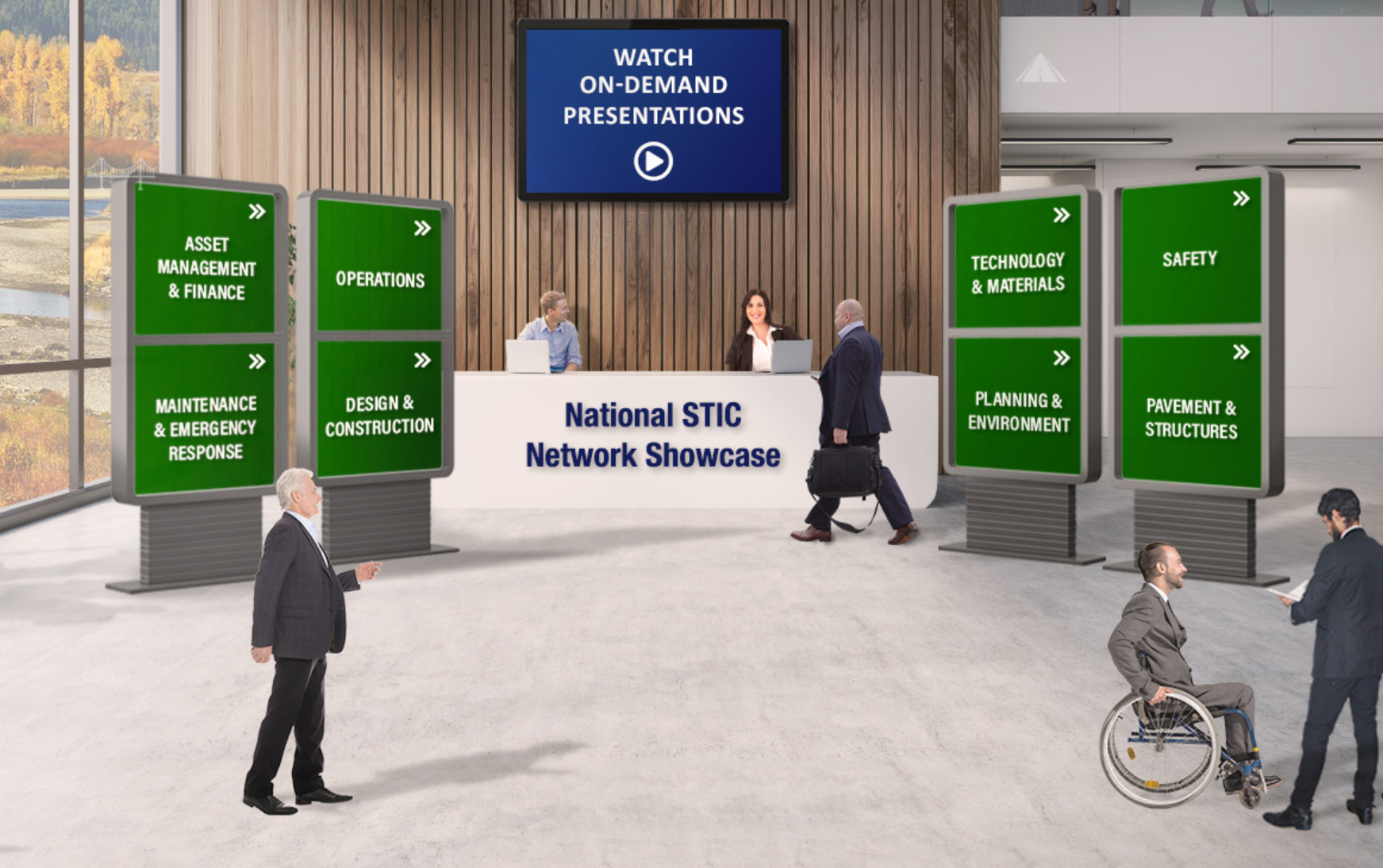The National State Transportation Innovation Council (STIC) Network Showcase at the EDC-6 Virtual Summit celebrated innovations developed across the country to save lives, time, and resources. The showcase gave the 245 innovations a wider audience to expand their use and impact.
Among the homegrown innovations are two tools the Missouri Department of Transportation (MoDOT) fashioned to increase safety. The tailgate lever opens a truck tailgate easily and keeps it propped open securely. In the past, there had been incidents when tailgates closed unexpectedly, leading to hand and finger injuries. The wing camera mounts to the top of the passenger side mirror of a snowplow, allowing the operator a view over the front-mounted wing plow to see cars or other obstructions while plowing. This keeps the public and MoDOT drivers safer and reduces claims for damage from plows.
The city of Wilmington, NC, devised another safety solution, temporary roundabouts made of traffic cones to better protect drivers and police officers at four-way intersections after natural disasters such as hurricanes. Typically, four officers are assigned to intersections where traffic lights are out. Now, one officer can be stationed at an intersection with cones set up around the police car as a barrier warning drivers to slow down and go around. No crashes have occurred at intersections with temporary roundabouts, and assigning one officer to work a roundabout makes more officers available for other duties.
 See all 245 homegrown innovations in the EDC-6 Virtual Summit platform. After registering, click on the National STIC Network Showcase button to access on-demand presentations, and click on each category to read about the innovations.
See all 245 homegrown innovations in the EDC-6 Virtual Summit platform. After registering, click on the National STIC Network Showcase button to access on-demand presentations, and click on each category to read about the innovations.The California Department of Transportation (Caltrans) deployed an innovative pavement material when it repaved a highway section with a plasticized binder containing recycled plastic bottles. Caltrans is testing the material for use throughout the State on projects using a cold-in-place recycling process. A 1-mile pavement segment using this treatment recycles 150,000 plastic bottles. The plastic pavement has been found in past tests to be more durable than hot-mix asphalt pavement. In addition to removing plastic from the waste stream, plastic pavement could reduce material costs by 25 percent and its durability could reduce maintenance costs.
The Nebraska Department of Transportation (NDOT) used an innovative finance approach to fund the $350 million Lincoln South Beltway, one of the largest capital improvement projects the agency has ever undertaken. Because Nebraska is a pay-as-you-go State, NDOT normally would use multiple construction contracts as annual funding permitted on a project of this size, likely over an 8-year period. Instead, NDOT will use deferred contract payment certificates (DCPC) to allow completion of the project in only 3 years. Issued as the contractor earns amounts for work completed, DCPC obligate NDOT to pay for the finished work. NDOT will make quarterly payments of up to $7.5 million until payment is complete.
- Cover
- Innovations for a Nation on the Move
- State Transportation Innovation Councils Deploy Homegrown Innovations
- Arizona and Maryland State Transportation Innovation Councils Demonstrate Success
- Crowdsourcing for Advancing Operations
- Next-Generation Traffic Incident Management
- EDC Legacy: A Network of Solutions to Make Roads Safer
- Learn About Every Day Counts Round Six Innovations
- About Innovator
